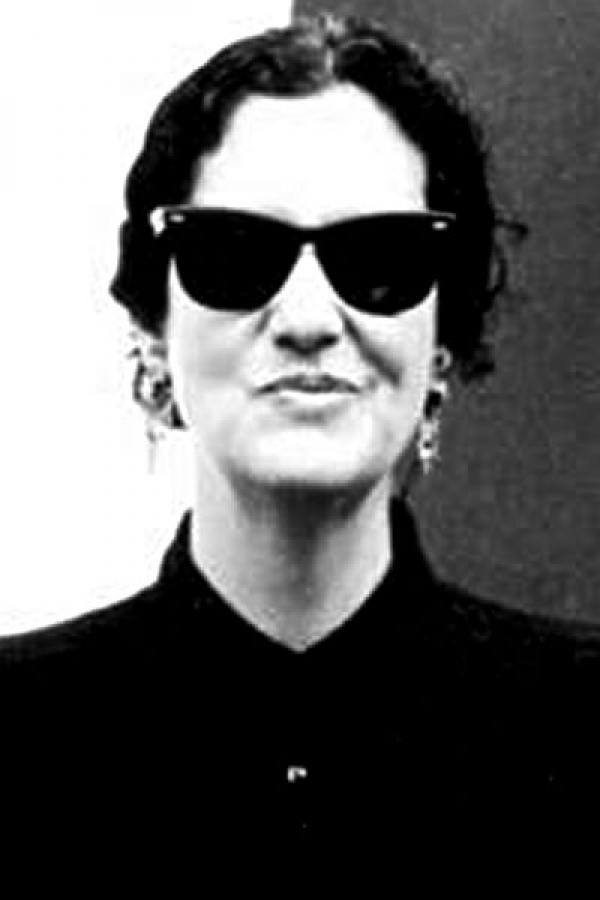Maggie Jaffe

Photo by Andi Olsen
Bio
Maggie Jaffe was born in Brooklyn, New York. She currently lives in San Diego with her two cats, Sweet Pea and Ollie, where she teaches in the English Department at San Diego State University. Her publications include Flic(k)s: Poetic Interrogations of American Cinema (Red Dragonfly Press, 2009); The Prisons (Cedar Hill Books, 2001); 7th Circle (Cedar Hill Books, 1998); How The West Was One (Vietnam Generation, 1997); Continuous Performance (Vietnam Generation, 1992); 1492: What Is It Like To Be Discovered? (a collaboration with Deborah Small, Monthly Review Press, 1991); and The Body Politic (Attica Press, 1989). She twice-won the San Diego Book Award for Poetry and was a recipient of a California Arts Council Grant. Her poems have appeared in hundreds of journals and anthologies.
Author's Statement
When I was eighteen years old or so, I would write poetry, often imitative of Allen Ginsberg, but for some inexplicable reason, I would only write on the subway. Later, Ginsberg's "Howl" would have a peculiar resonance. Through a temp agency, I was assigned to work on Wall Street, tallying up closing stock quotations. While seated in my cubicle, Bartleby-like, I recollected a fragment from Ginsberg: "who wept on typewriters," which at the time seemed profound. I left for lunch and never went back for my pay.
After college, I lived in Latin America, principally in Guatemala, for a number of years. Assiduously, I read many Latin American poets: Ernesto Cardenal, Pablo Neruda, Roque Dalton, Nicanor Parra, Claribel Alegría, Julia de Burgos, Otto Reneé Castillo. Besides their varying styles, they also demonstrated that poetry is not an intellectual exercise alone, but the reality that they lived. Castillo, for example, was tortured and killed by the Guatemalan authorities for writing poems that inspired change for the vast "army of the poor." These poets offered a model for politically engaged poetry which informs my own work. As William Carlos Williams so eloquently put it: "It is difficult / to get the news from poems / yet men die miserably every day / for lack / of what is found there." Poetry is my life.
I've applied for an NEA grant for more than 30 years. It is exhilarating to have finally won one, to say the least. My friends and colleagues are mightily impressed, but more importantly, the NEA grant has given me renewed faith in my writing, as well as more time to complete my new book, Flic(k)s, due out this fall from Red Dragonfly Press. The grant has also given me renewed respect for the government's openness in the selection process, since I consider my work to be "counter cultural." Lastly, everyone was so nice at the NEA offices, and I wish to thank them for that.
Equus
From San Diego the jet heads west to the Pacific, banks east to the desert. Below, the Salton Sea, a man-made ecological disaster, is used as a navigational guide for pilots. Developed in the 50s as a "fisherman's paradise," it's since become so toxic the prized corvinas wash-up on shore, gasping for air. No one vacations here. The pilot, who's a Brit, loves this country and points out places of interest: the Navajo Nation, Las Vegas, as well as the first atomic test site at Alamogordo. He won't mention the wild mustangs hunted for dog food. Nor will he point out "National Sacrifices"?land so toxic that it's uninhabitable and will always be. National Sacrifices are always on Indian Territory.
The woman next to me shows me photos of interchangeably pink and overweight children, and I feign interest. Wanting to end our enforced intimacy, I open The New Yorker to an oddly engrossing article about the history of Small Pox, a virus so "explosively contagious" and extraordinarily painful once the host is subjected to "an immune-system storm." Five more hours to Kennedy. Once there, the flight to London is delayed and sleep's impossible. Airborne, I awake inexplicably lost?I don't know why?in that ghostly North Pole light.
The only way to beat jet lag is by staying awake, but it's hell on the nerves. My husband and I take in a late-night movie, Equus, about a schizophrenic boy who blinds six horses and the therapist who must save him even if he can't save himself?What use is grief to a horse? You see, I am lost. I can't watch this, but I hear their screams. The scream of horses.
Regrettably, pubs are closed at this hour, so I head for the loo to compose myself. There, a solitary woman is clutching the sink. Although we're strangers, we hug each other, playing out an ancient human need as sister citizens without that requisite second skin. Neither of us says anything, and to this day I don't know if she could speak English or if she knew that I could. This is, after all, polyglot London.
I think of a meadow and the silent language of horses, the way they'll stand for hours barely touching, one facing west, one facing east.

